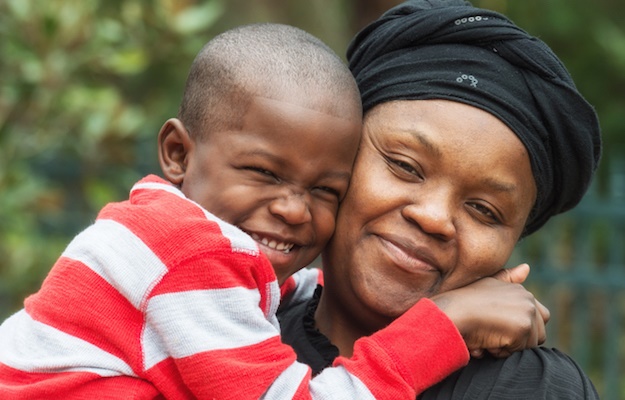
There are a few established "rules" for being a good parent. Praise your children for their achievements, big or small. Be warm and happy when you’re around them. Smile at them and stay upbeat. When it comes to babies, make lots of face to face verbal contact. Look at and talk to them while they babble and play. ![]()
Parenting matters
These approaches are based on extensive studies that seek to understand the relationship between parenting and child outcomes. Again and again, research has found that parenting behaviours have a huge impact on child development and success, from school performance to good peer relationships. The conclusion? Parenting matters and certain ways of parenting are better than others.
But how much does where you live or grew up influence how you parent? And are the same parenting techniques relevant in every setting? This is what I have studied while researching my PhD.
The Western cultural approach is not appropriate in all contexts
Most research into child development and parenting has been conducted in the West – specifically in North America and Eastern Europe. It is done by Western researchers studying Western children with Western parents. But only 12% of the world’s children and parents live in the West. The vast majority of families in huge swathes of the world have not been studied. What researchers currently know, and what’s presented as "optimal parenting", can only be assumed to explain a small group of people.
Research conducted elsewhere in the world suggests that cultural context is an important consideration when it comes to parenting and child development. It has also found that while some aspects of good parenting are universal, others look very different from country to country.
Praise, face-to-face verbal contact and putting on a warm, positive attitude when around your children are not found universally. They are not assumed to be as important in some places – like Alexandra in Johannesburg, South Africa, where I am conducting my research – as they are in Western contexts.
Individualism vs collectivism
My study in Alexandra, which many people call by its nickname, Alex, has backed up an idea that’s emerging in parenting research from elsewhere in the developing world. This is the notion that parenting practices are and should be intimately related to the context, culture and social values in which a child is being raised.
For example, a child raised in New York’s Westchester County needs to fit in and function in his individualistic culture. Where he’s from, success is likely measured by personal career achievements and individual social standing. This means he will likely need a good job.
To find a job, he will probably need a good Western education. To get a good Western education he will need confidence, good verbal skills and a friendly, smiley disposition. So, as a baby, it makes sense that he will need a chatty, smiley mother who praises and encourages him.
The causal chain is somewhat different for a child growing up in Alexandra, a densely populated area with primarily informal dwellings. It has a very high crime rate, high levels of drug use and domestic violence, and low levels of employment. Important child outcomes are different for parents in this context. Keeping your children away from drugs and out of trouble are far bigger concerns than how many friends they have.
Culturally – as is the case across the African continent – collectivism is valued over individualism in Alexandra. Children are considered to have been raised well if they respect their elders and comply with traditional practices. Modesty is valued. This may mean that effusive praise is discouraged, because it’s seen as putting an individual’s success ahead of a group’s. Parents aren’t trying to build confidence to achieve personal success. Instead, they are focused on building protective strategies and compliance.
Seeking a culturally specific parenting approach
As with any society, some parents in Alex are getting things right while others are not. Some parents raise successful children. Others have told me they are endlessly frustrated with their child’s "bad behaviour" or "poor school performance".
Many of these struggling parents turn to psychologists and social workers for help. But experience and research is showing that helping is not as simple as applying Western interventions based on Western research. And it’s not quite clear where we should start to develop something culturally and contextually appropriate.
My research sets out to establish the "rules" of being a good parent in the very unique context of Alexandra. Ultimately, my work will outline what parental behaviours and practices in Alex are positive and lead to good outcomes. It will also examine which behaviours are not helpful, and where these are coming from.
Nicola Dawson, is a psychologist and researcher into Infant Mental Health, University of the Witwatersrand. This article was originally published on The Conversation. Read the original article.
Can you relate to Ms Dawson's research? Where have you come up against cultural differences in parenting in South Africa? What set up "rules" are unique in the African context and how would you help a struggling parent without imposing Western values on the family? Please send your stories and comments to chatback@parent24.com for possible publication. Kindly tell us if you'd like to remain anonymous.




 Publications
Publications
 Partners
Partners










